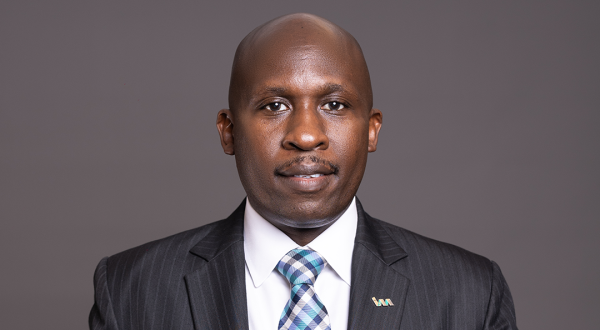In a recent ruling that has captured the attention of Uganda’s business community, businessman Haruna Sentongo, the brother of billionaire businessman Hamis Kigundu, has been ordered by Uganda’s Court of Appeal to repay UGX 10.38 billion to I&M Bank Uganda (formerly known as Orient Bank) or risk losing his property. This case is a critical one as it emphasises the strict enforcement of contract terms, the importance of fulfilling financial obligations, and the potential consequences of non-compliance in a business setting.
The Case Background
The case stems from a series of credit facilities that Haruna Sentongo obtained from I&M Bank Uganda to finance his ambitious real estate projects, including the development of Nakayiza Mall and Segawa Market. The loans were intended to support construction and working capital for Sentongo’s business ventures. However, over time, the businessman failed to meet the terms of the loan repayment, resulting in a significant financial dispute between him and the bank.
The dispute initially began when I&M Bank Uganda filed a suit against Haruna Sentongo in 2019, demanding repayment of the outstanding debt that had accrued due to defaulted loans. In response, Sentongo filed a counterclaim, accusing the bank of fraudulent disbursements, excessive charges, and breaching the terms of the loan agreements. He argued that the loan amounts were not fully disbursed as agreed upon and that the bank had used extortionate and illegal means to charge him excessive interest and penalties.
The legal proceedings involved two main cases:
HCCS No. 464 of 2018, filed by Haruna Sentongo against I&M Bank Uganda, where he sought recovery of sums that were unjustly charged by the bank, as well as claims for loss of business income, unjust enrichment, and various forms of damages.
HCCS No. 36 of 2019, filed by the bank against Sentongo for the recovery of UGX 10,397,156,548(approximately 10.4 billion UGX), which included the outstanding principal of the loans, as well as contractual interest, and penalties.
The High Court Commercial Division in Kampala consolidated the two cases and subsequently ruled in favor of I&M Bank. The court concluded that Sentongo was indeed indebted to the bank and ordered him to repay UGX 10,384,396,959 (approximately 10.38 billion UGX), the sum that had been disbursed to him by the bank.
The Court of Appeal’s Judgment
Dissatisfied with the High Court’s decision, Sentongo appealed to the Court of Appeal, claiming that the trial judge had erred in law and fact by failing to consider several crucial aspects of the case. The appellant argued that the bank had failed to prove the disbursement of the loans and that the court had wrongly upheld the contractual obligations between him and the bank. Sentongo also raised allegations of fraud and mismanagement of the loan facilities, accusing the bank of creating fictitious accounts, reversing loan amounts, and charging unlawful fees.
Despite these claims, the Court of Appeal, led by Justices Cheborion Barishaki, Gashirabake, and Mugenyi, upheld the High Court’s judgment, ruling that the loan agreements were valid and enforceable. The court found that the disbursements were made according to the terms of the facility letters and that the appellant had received the funds as agreed. The Court of Appeal also rejected the Appellant’s claims of fraud and misrepresentation by the bank, noting that there was sufficient evidence on record to prove that the bank had properly disbursed the loans to Sentongo’s account. The court further dismissed the allegations that the bank had unjustly enriched itself at Sentongo’s expense.
Key Figures in the Case
One of the most critical aspects of the case is the amount involved. According to the court’s ruling, the bank had initially demanded UGX 10,397,156,548 (approximately 10.4 billion UGX) from Sentongo, which included the principal loan amount and the accrued interest. However, after considering the evidence, the Court of Appeal found that the correct figure was UGX 10,384,396,959 (approximately 10.38 billion UGX), which was the amount Sentongo was ordered to repay.
In addition to the principal amount, the court awarded I&M Bank general damages in the amount of UGX 150,000,000(about 150 million UGX) for the loss the bank had suffered due to Sentongo’s failure to repay the loans. The court also imposed an interest rate of 22% per annum on the outstanding sum, which will continue to accrue from the date of first default until the debt is fully paid. The interest rate was considered commercial, aligning with the banking sector standards.
Property and Collateral
Another significant aspect of the case was the collateral that Sentongo had provided to secure the loans. The court noted that the businessman had mortgaged several properties, including land in Kibuga Block 12 in Mengo, specifically Plots 250, 251, and 252, which were part of the Segawa Market development. These properties, as per the loan agreements, were used as collateral for the loans extended to Sentongo by the bank.
Given that the businessman failed to repay the loan as ordered by the court, I&M Bank has been granted the authority to recover the debt by selling the mortgaged property. The bank can take steps to sell the Kibuga Block 12 properties to recover the outstanding debt, which amounts to UGX 10.38 billion. This adds a layer of seriousness to the case, as the businessman stands to lose valuable real estate if the debt is not paid.
Sentongo’s Claims and Legal Arguments
Throughout the legal proceedings, Haruna Sentongo maintained that the loan agreements he entered into with the bank were unfair and extortionate. He argued that the interest rates charged were excessive, and the bank had imposed unreasonable fees and penalties. Sentongo also contended that the bank had mismanaged the loans, including failing to disburse the full loan amounts and withdrawing funds from his account without authorization.
One of his key arguments was that the bank had created fictitious loans, meaning that the bank had credited sums to his account but later reversed or clawed them back without his knowledge. He claimed that the bank’s actions were fraudulent and in violation of the bank-customer fiduciary relationship. He also stated that he was subjected to undue influence and economic duress in signing the loan agreements.
However, the Court of Appeal found no merit in these allegations. The court considered the documentary evidence presented by the bank, including the loan facility letters, bank statements, and disbursement records. The court also reviewed the testimony of Sentongo’s expert witness, PW3, and found that the expert’s report was unreliable due to inconsistencies in the methodology used to calculate the interest charges. The court concluded that the loan disbursements were legitimate, and the charges were in accordance with the terms of the contract.
Implications for Business and Banking in Uganda
The ruling in Sentongo v I&M Bank is significant in many ways. First, it underscores the importance of contractual obligations in the business and banking sectors. It sends a strong message to borrowers that failing to honour loan agreements can result in serious legal and financial consequences, including the seizure of property. The case also highlights the need for transparency and accountability in banking transactions, as well as the importance of documentary evidence in resolving financial disputes.
Furthermore, the case reinforces the principle of enforceability of loan agreements and the responsibility of financial institutions to disburse loans as agreed. The court’s decision reaffirms that banks have the right to enforce repayment of loans and collect outstanding debts through legal means, including the sale of mortgaged property.
In conclusion, the case of Haruna Sentongo v I&M Bank Uganda highlights a crucial financial dispute between a businessman and a commercial bank. The Court of Appeal’s ruling, led by Justices Cheborion Barishaki, Gashirabake, and Mugenyi, places a strong emphasis on the legal enforceability of contracts and financial obligations, with Sentongo now required to repay UGX 10.38 billion or risk losing valuable property. This judgment serves as a landmark ruling for both businesses and individuals engaging in financial agreements in Uganda.

 Airtel Africa and SpaceX Announce Strategic Partnership to Launch Starlink Direct to Cell Connectivity Across Africa
Airtel Africa and SpaceX Announce Strategic Partnership to Launch Starlink Direct to Cell Connectivity Across Africa


